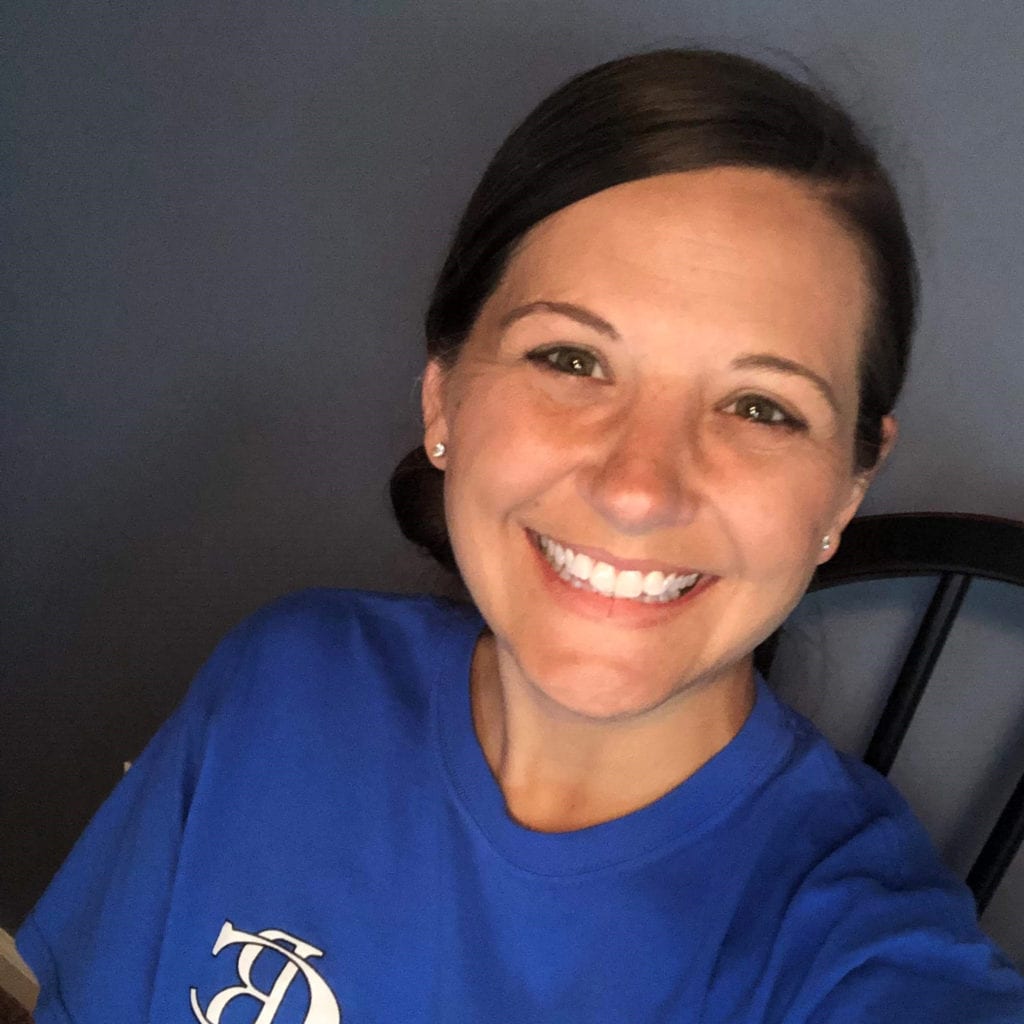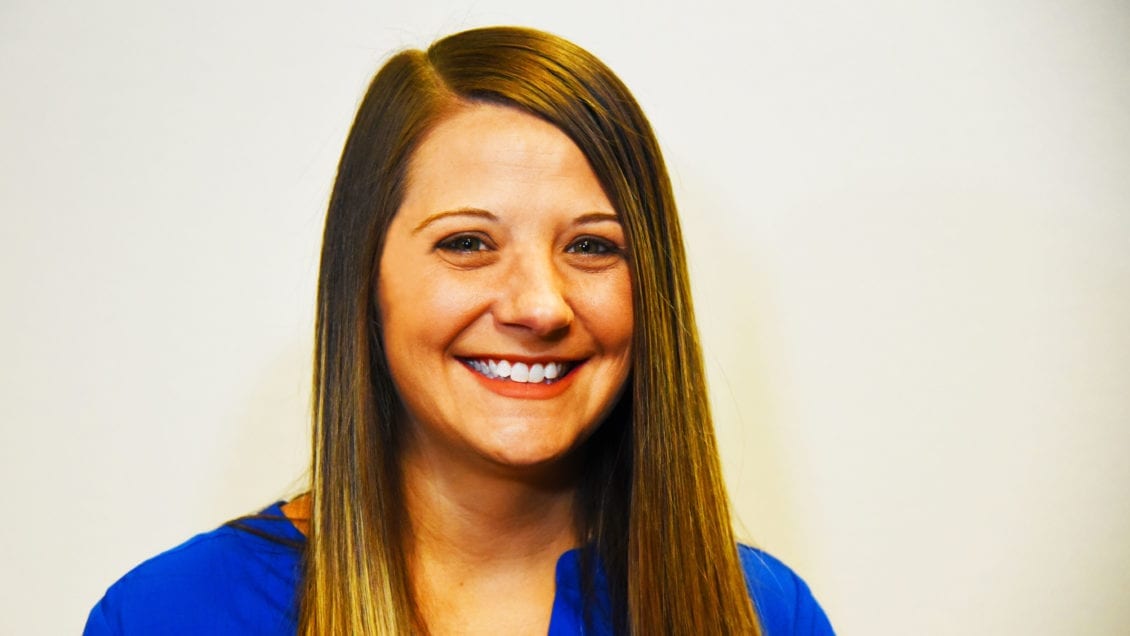When Melissa LaBerge became one of the first students to enroll in what was, at the time, a new Clemson University College of Education graduate program, she did not think she would eventually make history. In March, LaBerge became the first student in the College’s Doctor of Education (Ed.D.) in education systems improvement science program to successfully defend her dissertation.
Clemson University, Coastal Carolina University, Winthrop University and The Citadel established an Ed.D. consortium partnership and the program’s first cohort in summer 2018, of which LaBerge was a part. Completing an education specialist (Ed.S.) degree program at any of the four institutions offers students who are admitted to Clemson’s Ed.D. a pathway to earning a doctorate, which can help speed their overall time to completion. Geared to professionals who wish to remain in the school or practice setting, the program allows them to explore complex issues in education and develop action-based dissertations to address them.

Completing the Ed.D. was quite an accomplishment considering LaBerge’s professional life at the time. She completed the program while also serving as principal of Cane Bay Elementary School in Summerville, South Carolina. During a pandemic. Now that this particularly busy time has come to an end, we caught up with LaBerge to take a look back at her time as a Clemson graduate student and the program that has already made quite an impact across the state via its students.
How does it feel to be the first graduate of a program?
It is very rewarding! This has been a long journey but one that has taught me a lot about myself and education in South Carolina. It feels great to be finished and I am looking forward to graduation!
What appealed to you about the Ed.D. and why did you pursue it, especially considering it was a brand-new program?
This program was developed with working administrators in mind. I previously received my Ed.S. from The Citadel and was excited that Clemson offered a partnership that allowed me to continue my education. Courses were offered during the summers and weekends and many of our professors traveled to us in the Lowcountry. The cohort model appealed to me because I knew I would be learning alongside others who shared common interests in education and came from my school district. The focus on complex challenges in our state related to race, rurality and poverty also proved to benefit me in my future work as a school administrator.
What did you enjoy about the program?
The cohort model was one of the greatest components of this program. It helped me build strong relationships with other participants that will continue beyond my time in the program. I greatly enjoyed face-to-face courses and cannot say enough great things about Dr. Daniella Hall Sutherland! I was fortunate to learn from her during several courses and work through the dissertation process with her guidance.

How have you applied lessons learned to your current role at Cane Bay Elementary?
Much of the course work focused on race, rurality and poverty and the impacts of all three on South Carolina schools. I believe the coursework increased my awareness as a school leader, which I hope I am able to use to better serve my school community, families and students. Additionally, I learned how improvement science can be used to guide school improvement efforts, which is always a focus for school administrators.
Why do you think a program like this is needed in education and specifically in South Carolina?
Improvement science provides school leaders with tools to systematically improve practices. I believe that the implementation of improvement science can help identify problems, implement changes and then evaluate the effectiveness of the changes. It provides a process for school leaders to evaluate efforts in order to stay laser focused on improvement.
What did you focus your dissertation on?
The focus of my dissertation was the use of improvement science by a principal to increase teacher satisfaction and teacher retention rates in an elementary school setting. Teacher retention is at a critical place in education as more teachers are leaving the profession than can be replaced.
In an effort to increase the rate of teacher retention at an elementary school, I conducted an improvement science study aimed at identifying the factors that impact teacher satisfaction in order to positively impact teacher retention rates. The purpose of the study was to identify ways in which a school-level administrator can positively impact the rate of teacher retention through school-based interventions.

As a school principal, I identified two major findings. First, there are specific aspects of teaching that make it difficult and that elevate stress for teachers. Secondly, there are administrative responses that can be implemented to support teachers and positively influence their satisfaction.
I recommend increasing administrative support in the areas of student behavior and parent-teacher interaction as well as in content and application. Additionally, I have found that school principals can have a positive effect on the workload and expectations placed on teachers. Interventions can be implemented to help build positive working relationships and a positive work environment for teachers.

